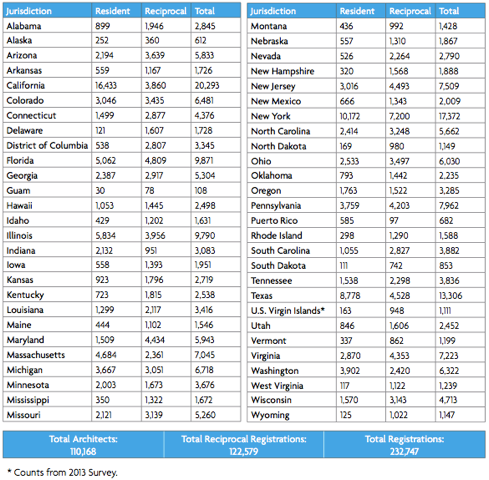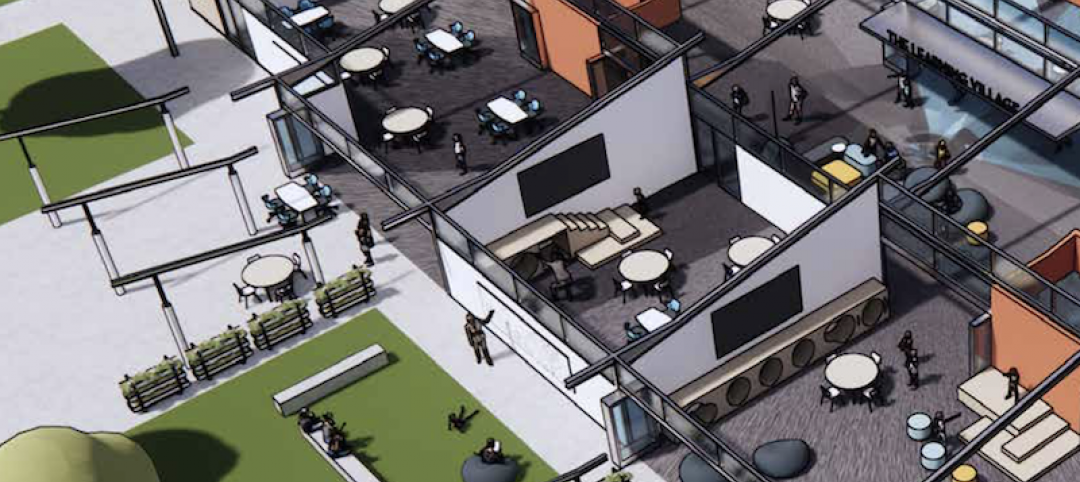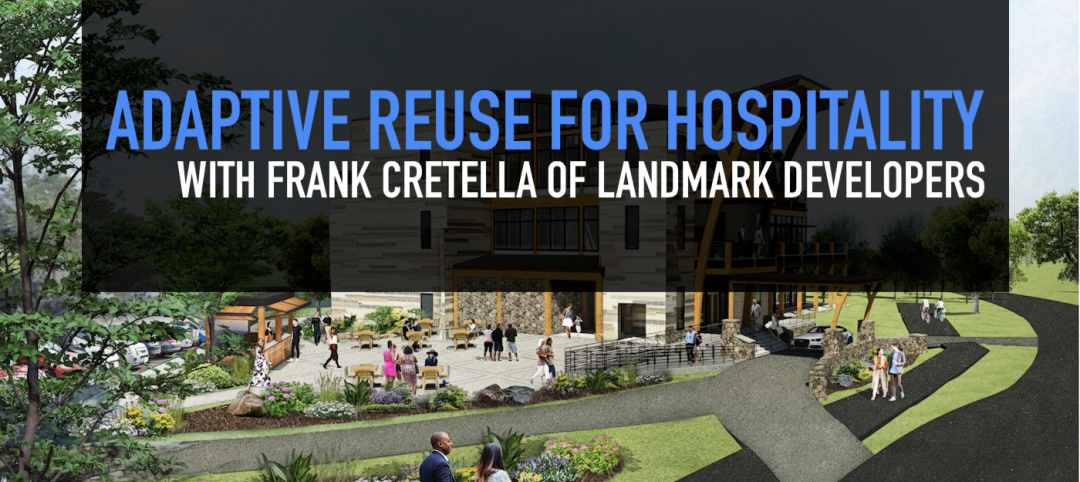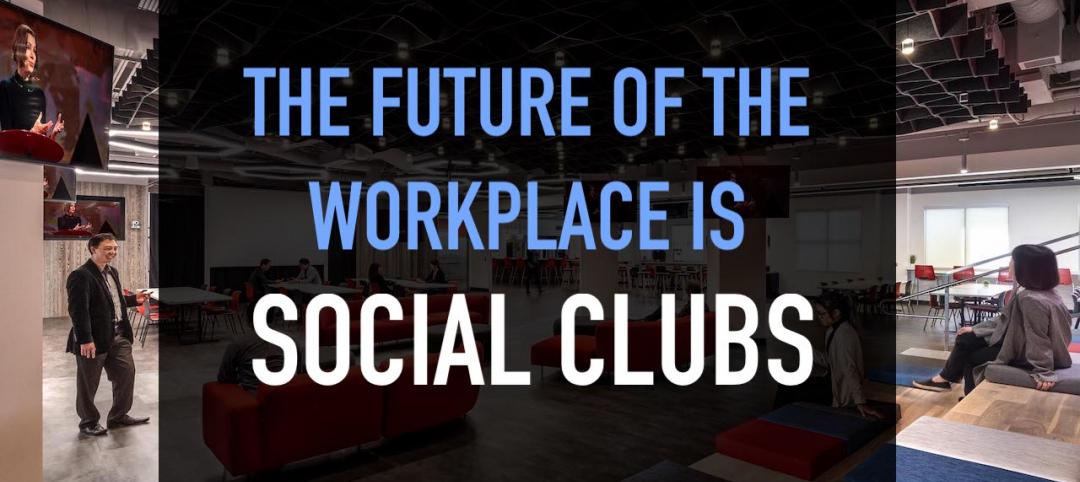There are currently 110,168 architects in the United States, according to the 2015 Survey of Architectural Registration Boards.
This marks the fourth consecutive year of growth and a 2% increase from 2014. Conducted annually by the National Council of Architectural Registration Boards (NCARB), the survey, combined with other key indicators, suggests the profession is healthy and growing.
The number of professionals working toward licensure reached an all-time high in 2015, with more than 41,500 candidates either taking the Architect Registration Examination (ARE) and/or reporting experience hours. This data, which will be available in July’s 2016 edition of NCARB by the Numbers, points to a growing interest among the next generation to become an architect.
“While there are a variety of factors that contribute to the health of the profession, these two trends point to a bright future,” said NCARB CEO Michael Armstrong. “As a record number of candidates work toward licensure, NCARB will continue to ensure our programs remain modern and inclusive, yet rigorous.”
The survey also reveals U.S. architects hold 122,579 (out-of-state) licenses, a 3% increase from 2014.
“As the economy improves, architects may be expanding their businesses across state lines,” said Armstrong. “We’ve also seen a growth in the number of architects who hold an NCARB Certificate, which facilitates reciprocal licensure.”
NCARB collects data on resident and reciprocal licenses from its 54 Member Boards, which includes the 50 states, the District of Columbia, Guam, Puerto Rico, and the U.S. Virgin Islands. The survey reflects registration data from January to December 2015.
To learn more about the Survey of Architectural Registration Boards, visit www.ncarb.org.

Related Stories
Resiliency | Jun 24, 2021
Oceanographer John Englander talks resiliency and buildings [new on HorizonTV]
New on HorizonTV, oceanographer John Englander discusses his latest book, which warns that, regardless of resilience efforts, sea levels will rise by meters in the coming decades. Adaptation, he says, is the key to future building design and construction.
Multifamily Housing | Jun 23, 2021
COVID-19’s impact on multifamily amenities
Multifamily project teams had to scramble to accommodate the overwhelming demand for work-from-home spaces for adults and study spaces for children.
Architects | Jun 22, 2021
6 ways design can supercharge innovation in health sciences and medical education
It might sound radical, but the best way to achieve better collaboration is by eliminating traditional operational silos and the resulting departments.
K-12 Schools | Jun 20, 2021
Los Angeles County issues design guidelines for extending PreK-12 learning to the outdoors
The report covers everything from funding and site prep recommendations to whether large rocks can be used as seating.
Hotel Facilities | Jun 18, 2021
Adaptive reuse for hospitality, with Frank Cretella of Landmark Developers
In an exclusive interview for HorizonTV, Landmark Developers' President Frank Cretella talks about the firm's adaptive reuse projects for the hospitality sector. Cretella outlines his company's keys to success in hospitality development, including finding unique properties and creating memorable spaces.
Architects | Jun 16, 2021
BSB Design acquires California architectural firm Withee Malcolm
The acquisition marks a pivotal step in BSB Design’s long-term strategic plan.
Architects | Jun 15, 2021
Sandy Hook Permanent Memorial set to break ground
SWA Group designed the project.
Architects | Jun 15, 2021
Chicago Architecture Center and Chicago Architectural Club announce competition calling for new visions for State of Illinois “Thompson Center”
Competition seeks to give State of Illinois Center new life while preserving its architecture and public character.
Wood | Jun 10, 2021
Three AEC firms launch a mass timber product for quicker school construction
TimberQuest brand seeks to avoid overinvestment in production that has plagued other CLT providers.
Office Buildings | Jun 10, 2021
The future of the workplace is social clubs
Office design experts from NELSON Worldwide propose a new concept for the workplace, one that resembles the social clubs of the past.



![Oceanographer John Englander talks resiliency and buildings [new on HorizonTV] Oceanographer John Englander talks resiliency and buildings [new on HorizonTV]](/sites/default/files/styles/list_big/public/Oceanographer%20John%20Englander%20Talks%20Resiliency%20and%20Buildings%20YT%20new_0.jpg?itok=enJ1TWJ8)













